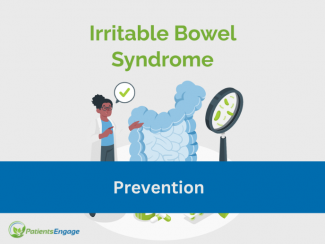
You can try and prevent the triggers of IBS:
1. Stress can aggravate the symptoms of IBS like constipation and diarrhea. Manage your stress. The simple steps are to eat a healthy meal, meditate or do breathing exercise, exercise regularly. Read more about how to manage your stress so it does not trigger IBS symptoms.
2. Diet related triggers:
Common foods that trigger the symptoms of IBS are:
Processed foods such as chips and cookies
Coffee, carbonated drinks, and alcohol
Dairy products
You should eliminate these from your diet.
Those who have IBS-C may need to incorporate more fibre in their diet while those with IBS-D may need to reduce the fibre in their diet. If you are lactose intolerant or gluten intolerant, dairy and wheat products are like to trigger diarrhea.
Build awareness of your diet and reduce stress and anxiety to prevent/ease IBS symptoms. Make sure you exercise regularly and stay happy.
Related article: Should you add probiotics to your diet









